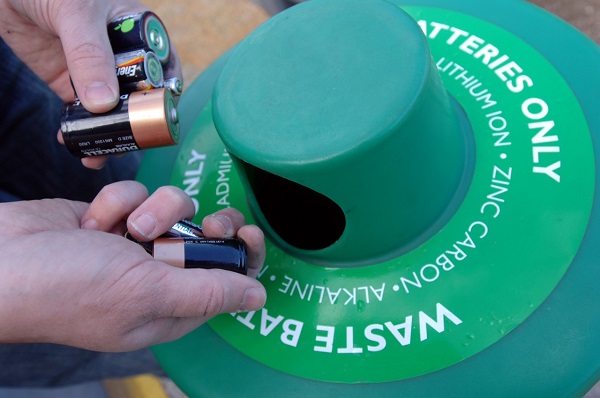Gadget users are being urged “don’t bin that battery”, and to take other steps to avoid the risk of setting off a blaze in their rubbish bin that could endanger their home and family.
The warning follows two as-yet unexplained accidental fires in Somerset; one in a Chard rubbish bin threated a house and another in refuse added to the landfill site at Walpole near Bridgwater.
All batteries need care as they hold the potential to “short” and create sparks, while their poisonous chemical cocktail means they should always be recycled rather than sent to landfill.
But there are particular concerns about the many lithium-ion batteries used in mobile phones, cameras and other portable devices with high power demands. The power levels and light construction of li-ion batteries brings the risk of a fire or explosion if they get bent, broken or pierced when discarded into rubbish bins or black sacks.
There is a high potential for a blaze that takes days to put out if batteries are crushed in a rubbish truck and buried in a landfill site, where decaying organic matter can cause rising temperatures. Recent years have seen a number of waste-related incidents, including fires in rubbish bins, refuse trucks and landfill sites, and even blaze deaths. Yet all batteries can be recycled.
Many outlets, from most supermarkets to DIY and electrical stores, take batteries for recycling, and while not yet collected at the kerbside, batteries are taken at all Somerset recycling sites.
A Somerset Waste Partnership (SWP) spokesman said: “Batteries are a real fire risk in your rubbish, especially the high power li-ion type, so recycling is the smart and safe option. “And, since single-use batteries are a very costly and inefficient power source, better to use the mains or invest in rechargeable batteries to save money, resources and time.”
Batteries are among several waste fire hazards that should not be added to rubbish, including:
- Hot ash from fires or barbecues, or the not fully extinguished contents of ashtrays; these
must be damped down fully or allowed to cool completely. - Broken glass that can act as a magnifying lens in landfill if not carefully wrapped.
- Aerosols that can get hot or be pierced or crushed during collection and landfilling.
For more on how to recycle and stay safe, see HERE


 Please Wait...
Please Wait...